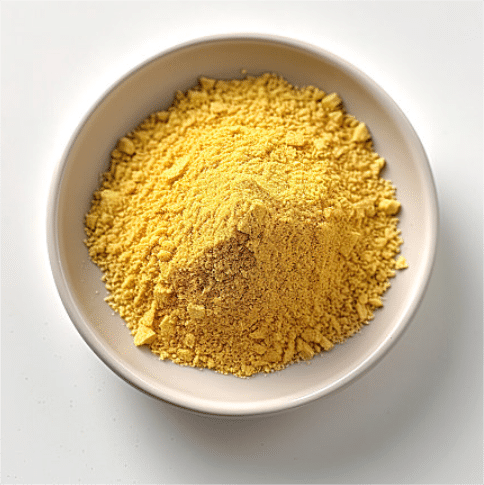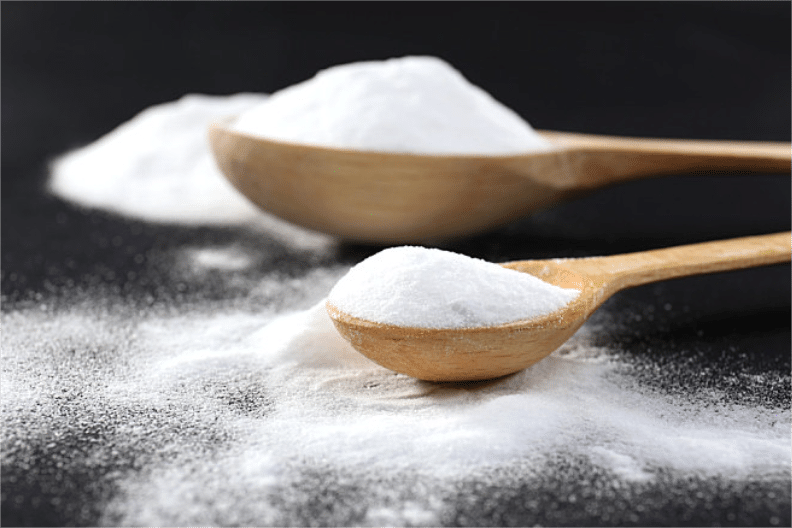Çuha Çiçeği Yağı ve DHA Algal Yağı - her biri benzersiz sağlık faydaları sunan iki güçlü takviye. İster cilt sorunları ve hormonal dengesizliklerden kurtulmak isteyin, ister beyin, kalp ve göz sağlığınızı iyileştirmeyi hedefleyin, Çuha Çiçeği Yağı ve DHA Algal Yağı arasındaki farkları anlamak çok önemlidir. Bu makalede kaynakları ve faydaları incelenmektedir, takvi̇ye türleri̇ve daha fazlası, net bir karşılaştırma tablosu ve sağlıklı yaşam hedefleriniz için en iyi seçeneği seçmenize yardımcı olacak bilim destekli bilgilerle.
Çuha Çiçeği Yağı ve DHA Algal Yağını Anlamak
Çuha Çiçeği Yağı: Omega-6 Güç Merkezi
Çuha Çiçeği Yağı Kuzey Amerika ve Avrupa'ya özgü bir kır çiçeği olan çuha çiçeği bitkisinin tohumlarından elde edilir. İçeriğinde zengin omega-6 yağ asitleriözellikle gama-linolenik asit (GLA) (8-10%) ve linoleik asit (LA) (~70%). Bu yağlar enflamasyonun azaltılmasında ve hormonal dengenin desteklenmesinde önemli bir rol oynar. EPO, besin maddelerini korumak için tipik olarak soğuk preslenir ve yağın saf ve etkili kalmasını sağlar. Yüksek GLA içeriği onu cilt rahatsızlıkları ve adet öncesi sendrom (PMS) gibi kadın sağlığı sorunları için tercih edilir kılar.

DHA Algal Yağı: Vegan Omega-3 Kaynağı
DHA Algal Yağı gibi mikroalglerden elde edilir. Schizochytrium tanklar veya havuzlar gibi kontrollü ortamlarda yetiştirilen türler. Bitki bazlı bir besin kaynağıdır. omega-3 yağ asitleriöncelikle dokosaheksaenoik asit (DHA) (30-70%) ve bazen eikosapentaenoik asit (EPA). DHA beyin ve göz dokusunun kritik bir bileşenidir, bu da onu bilişsel ve görsel sağlık için gerekli kılar. Balık yağına sürdürülebilir, vegan dostu bir alternatif sunan bu yağ, kirletici maddelerden arındırılmak üzere ekstrakte edilir ve saflaştırılır. Saflığı ve yüksek DHA içeriği onu kalp ve beyin desteği için ideal hale getirir.
Her iki yağ da esansiyel yağ asitleri sağlar, ancak faydaları ve uygulamaları önemli ölçüde farklılık gösterir. Şimdi her birinin sağlığınız için neler yapabileceğini keşfedelim.
Her Bir Yağın Sağlığa Faydaları
Çuha Çiçeği Yağı: Cilt ve Hormonal Destek
Cilt Sağlığı: EPO egzama ve akne gibi cilt rahatsızlıklarında yaygın olarak kullanılır. GLA içeriği, iltihaplanmayı azaltmaya ve cildin nemlenmesini iyileştirmeye yardımcı olarak cildi daha pürüzsüz ve tahrişe daha az eğilimli hale getirir. 2018 yılında yapılan bir çalışmada, EPO takviyesinin hafif egzaması olan kişilerde cilt bariyer fonksiyonunu iyileştirdiği, kuruluğu ve kaşıntıyı azalttığı bulunmuştur.
Hormonal Denge: EPO, PMS veya menopoz semptomlarıyla uğraşan kadınlar için bir favoridir. Hormon regülasyonunu destekleyerek göğüs hassasiyetini, ruh hali değişimlerini ve sıcak basmalarını hafifletebilir. Araştırmalar, günde 500-1000 mg EPO'nun bazı kadınlarda PMS semptomlarını 60%'ye kadar azaltabildiğini göstermektedir.
Eklem Sağlığı: GLA'nın anti-enflamatuar özellikleri romatoid artrite yardımcı olabilir, eklem ağrısı ve sertliğini azaltabilir. Bir tedavi olmasa da, hafif vakalar için diğer tedavileri tamamlayabilir.
Kimin İçin: Kuru veya iltihaplı cilt, PMS, menopoz semptomları veya hafif eklem ağrısı olan kişiler.
DHA Algal Yağı: Beyin, Kalp ve Göz Sağlığı
Beyin Sağlığı: DHA beynin önemli bir yapı taşıdır ve yağ asitlerinin yaklaşık 20%'sini oluşturur. Bilişsel işlevi, hafızayı ve hatta hamilelik sırasında fetal beyin gelişimini destekler. Çalışmalar, DHA takviyesinin bebeklerde bilişsel sonuçları iyileştirdiğini ve yetişkinlerde bilişsel gerileme riskini azaltabileceğini göstermektedir.
Kalp Sağlığı: DHA Algal Yağı trigliseritleri düşürmeye yardımcı olur, sağlıklı kolesterol seviyelerini destekler ve normal kan basıncını korur. 2020 yılında yapılan bir çalışmada, DHA takviyesinin yüksek seviyeli yetişkinlerde trigliserit seviyelerini 15% azalttığı ve kardiyovasküler sağlığı desteklediği bulunmuştur.
Göz Sağlığı: DHA retina sağlığı için hayati önem taşır, kuru göz semptomlarını azaltır ve potansiyel olarak yaşa bağlı maküler dejenerasyon riskini düşürür. Araştırmalar, günde 500 mg DHA'nın kuru gözlü kişilerde gözyaşı üretimini iyileştirebileceğini göstermektedir.
Kimin İçin: Beyin, kalp veya göz sağlığı desteği arayanlar, özellikle veganlar, vejetaryenler veya hamile kadınlar.
Mevcut Ek Türleri
Çuha Çiçeği Yağı
- Kapsüller: PMS, menopoz veya cilt sağlığı için alınan, tipik olarak doz başına 500-1300 mg olan en yaygın form. Günlük rutinlere dahil edilmesi kolaydır.
- Sıvı: Doğrudan tüketim veya gıda ile karıştırma için kullanılabilir, özelleştirilmiş dozajlama için idealdir.
- Topikal Ürünler: Cilde doğrudan uygulama için krem veya losyonlarda bulunur, genellikle egzama veya sedef hastalığı için kullanılır.
- Kombinasyon Takviyeleri: Balık yağı ile karıştırılmış, hodan yağı, veya antiinflamatuar etkileri artırmak veya raf ömrünü uzatmak için E vitamini.
DHA Algal Yağı
- Kapsüller: Softgels (500-1000 mg) beyin ve kalp sağlığı için genellikle az miktarda EPA ile birlikte yüksek DHA dozları sağlar.
- Sıvı: Doğrudan alım veya smoothie ve yiyeceklere ekleme için sunulur, hap yutmayı sevmeyenler için popülerdir.
- Bebek Formülleri: Bebeklerde beyin ve göz gelişimini desteklemek için bebek formüllerine eklenir, tipik olarak toplam yağ içeriğinin 0.2-0.4%'si kadardır.
- Fonksiyonel Gıdalar: Omega-3 alımını artırmak için süt ürünleri, tahıllar veya içecekler gibi ürünlere eklenir.
- Vegan Multivitaminler: Kapsamlı sağlık desteği için bitki bazlı takviyelerdeki diğer besinlerle birleştirilir.
Evening Primrose Yağı ve DHA Algal Yağının Karşılaştırılması
İşte farklılıklarını vurgulamak için yan yana bir karşılaştırma:
| Aspect | Çuha Çiçeği Yağı | DHA Algal Yağı |
|---|---|---|
| Kaynak | Çuha çiçeği tohumları | Mikroalgler (örn. Schizochytrium sp.) |
| Temel Besin Maddeleri | Omega-6 (GLA, linoleik asit) | Omega-3 (DHA, bazen EPA) |
| Birincil Faydalar | Cilt sağlığı, hormonal denge, eklem desteği | Beyin, kalp, göz sağlığı |
| Takviye Türleri | Kapsüller, sıvı, topikal kremler, kombinasyonlar | Kapsüller, sıvı, bebek formülleri, fonksiyonel gıdalar, vegan multivitaminler |
| Sürdürülebilirlik | Bitki bazlı, yaygın olarak bulunur | Sürdürülebilir, vegan dostu, deniz kirletici içermez |
| Absorpsiyon | Orta düzeyde, GLA vücutta DGLA'ya dönüşür | Yüksek, DHA/EPA doğrudan biyolojik olarak kullanılabilir |
| İçin En İyisi | Egzama, PMS, menopoz, hafif artrit | Bilişsel sağlık, kalp sağlığı, hamilelik |
| Fiyat Aralığı | Uygun fiyatlı, 120 kapsül için $10-20 | Daha yüksek, 60 kapsül için $20-40 |
Vücutta Nasıl Çalışırlar?
Çuha Çiçeği Yağı
EPO'daki GLA vücutta dihomo-gama-linolenik aside (DGLA) dönüştürülür ve bu da prostaglandinler adı verilen anti-enflamatuar bileşikler üretir. Bu süreç cilt rahatsızlıklarında iltihaplanmayı azaltmaya, hormonal dengesizlikleri hafifletmeye ve eklem sağlığını desteklemeye yardımcı olur. Emilim orta düzeydedir ve faydalar en çok 4-8 hafta boyunca tutarlı kullanımla fark edilir. En iyi sonuçlar için, yağ emilimini artırmak amacıyla yemekle birlikte günde 500-1000 mg alın.
DHA Algal Yağı
Alg yağındaki DHA ve EPA, özellikle beyin, kalp ve gözlerde olmak üzere doğrudan hücre zarlarına emilir. DHA, hücre zarlarının akışkanlığını destekleyerek sinir sinyalizasyonunu ve kardiyovasküler fonksiyonu iyileştirir. Biyoyararlanımı balık yağı ile karşılaştırılabilir ve çalışmalar kalp sağlığı için benzer faydalar göstermektedir. Günlük 200-500 mg DHA dozu çoğu yetişkin için etkilidir ve ideal olarak yiyeceklerle birlikte alınır.
Hangisini Seçmelisiniz?
Seçiminiz sağlık hedeflerinize ve yaşam tarzınıza bağlıdır:
- Cilt veya Hormonal Sorunlar İçin: Seçiniz Çuha Çiçeği Yağı Egzama, akne, PMS veya menopoz semptomları ile uğraşıyorsanız. İçeriğindeki anti-enflamatuar GLA bu durumlar için özel olarak tasarlanmıştır. En az 8% GLA içeriğine sahip soğuk preslenmiş EPO arayın.
- Beyin, Kalp veya Göz Sağlığı İçin: Bilişsel işlevi, kardiyovasküler sağlığı veya görmeyi desteklemek istiyorsanız DHA Algal Yağını tercih edin. Ayrıca omega-3'e ihtiyaç duyan veganlar veya hamile kadınlar için de idealdir. Porsiyon başına 200-500 mg DHA içeren ürünleri seçin.
- Omega-6 ve Omega-3'ün Dengelenmesi: EPO omega-6 ve DHA Algal Yağı omega-3 olduğundan, sağlıklı bir yağ asidi dengesini korumak için her ikisini de düşünebilirsiniz (ideal oran ~4:1). Emilim için rekabetten kaçınmak için günün farklı saatlerinde alın.
Takviye Seçimi İçin İpuçları
- Saflığı Kontrol Edin: Kirletici madde veya ekşime olmadığından emin olmak için soğuk preslenmiş EPO ve üçüncü taraflarca test edilmiş DHA Algal Yağı arayın.
- Sertifikalar: Kalite güvencesi için ISO, GMP veya vegan sertifikalarına sahip ürünleri seçin.
- Bir Doktora Danışın: Kan sulandırıcı kullanıyorsanız veya planlanan bir ameliyatınız varsa, her iki yağ da kanın pıhtılaşmasını etkileyebileceğinden bir sağlık uzmanına danışın.
- Küçük Başlayın: Toleransı değerlendirmek için daha düşük bir dozla (örn. 500 mg EPO veya 200 mg DHA) başlayın.
Sık Sorulan Sorular Yanıtlandı
İkisini birlikte alabilir miyim?
Evet, ancak denge önemlidir. EPO'dan gelen çok fazla omega-6, omega-3 faydalarından daha ağır basabilir, bu nedenle 4:1 oranını hedefleyin. Bunları ayrı öğünlerde almak emilimi artırabilir.
Cilt için hangisi daha iyidir?
EPO egzama gibi iltihaplı cilt rahatsızlıkları için daha iyi iken, DHA Algal Yağı genel cilt nemini ve sağlığını destekler.
Herkes için güvenli mi?
Her ikisi de genellikle güvenlidir, ancak kan sulandırıcılarla etkileşime girebilir veya kanama riskini artırabilir. Hormonları etkileyebileceğinden, hamile kadınlar EPO almadan önce bir doktora danışmalıdır.
Sonuçları görmem ne kadar sürer?
EPO, 4-8 hafta içinde cilt ve hormonal faydalar gösterir. DHA Algal Yağı 8-12 hafta içinde bilişsel veya kalp belirteçlerini iyileştirebilir, göz faydaları daha erken fark edilir.
Faydaların Ardındaki Bilim
Araştırmalar her iki takviyeyi de desteklemektedir. 2018 yılında yapılan bir çalışma Dermatoloji ve Tedavi EPO'nun 12 hafta sonra katılımcılarda egzama semptomlarını 30% azalttığını bulmuştur. DHA için, 2020 yılında yapılan bir meta-analiz The American Journal of Clinical Nutrition algal DHA'nın trigliseritleri 15% düşürdüğünü ve yetişkinlerde HDL kolesterolü iyileştirdiğini göstermiştir. Bu bulgular EPO'nun enflamasyondaki rolünü ve DHA'nın kalp ve beyin sağlığı için faydalarını doğrulamaktadır. Bununla birlikte, kalite önemlidir - düşük dereceli yağlar aynı sonuçları vermeyebilir.
Son Düşünceler
Evening Primrose Oil ve DHA Algal Oil farklı güçlere sahip güçlü takviyelerdir. EPO cilt sorunları, PMS veya eklem ağrılarıyla başa çıkmak için seçiminiz olurken, DHA Algal Yağı özellikle veganlar veya balık yağından kaçınanlar için beyin, kalp ve göz sağlığını desteklemede mükemmeldir. Sağlık hedeflerinizi doğru yağla eşleştirerek sağlıklı yaşam rutininizi optimize edebilirsiniz.
Denemeye hazır mısınız? Gensei Global Industries gibi güvenilir tedarikçilerin yüksek kaliteli seçeneklerini keşfedin (sales@collagensei.com) veya en uygun olanı bulmak için bir sağlık uzmanına danışın. Düşüncelerinizi veya sorularınızı yorumlarda paylaşın - sizden duymak isteriz!
Referanslar
- Muggli, R. (2018). "Sistemik Çuha Çiçeği Yağı, Hafif Atopik Dermatiti Olan Yetişkinlerin Biyofiziksel Deri Parametrelerini İyileştirir." Dermatoloji ve Tedavi, 8(2), 287-295.
- Bernstein, A. M., ve diğerleri (2020). "Algal DHA Takviyesinin Kardiyovasküler Risk Faktörleri Üzerindeki Etkileri: Bir Meta-Analiz." The American Journal of Clinical Nutrition, 111(3), 648-657.
- Bayles, B., & Usatine, R. (2009). "Premenstrüel Sendrom için Çuha Çiçeği Yağı." Amerikan Aile Hekimi, 80(12), 1405-1408.



